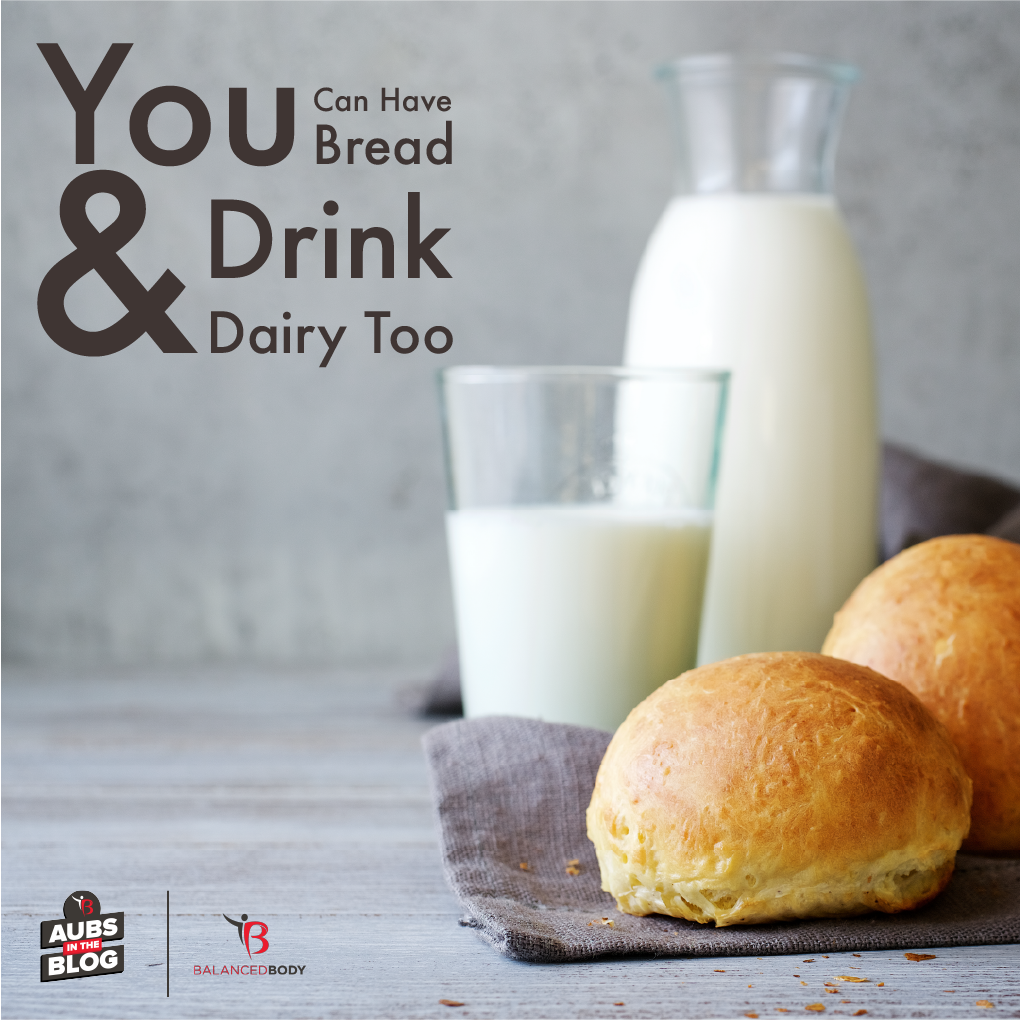In past blogs, I’ve talked about food labeling. I believe we should avoid categorizing foods as “good” or “bad” because of the impression it can have on our relationship with food. Through social media and marketing techniques, our society has been conditioned to think that certain foods are not healthy and need to be avoided. I wanted to take this blog to give a different perspective on two of the most common “culprits” out there, bread and dairy.
Labeled by their bad rap for, “I ate way too much at dinner because of the free rolls” and “I’m so bloated from that ice cream yesterday” to “…now I gained five pounds”, bread and dairy have been looked at from one side of the table. The truth is both these contain essential macro and micronutrients while providing short and long-term health benefits. Check out why these 2 “bad” foods are more worthy of being in the spotlight than shunned to the kitchen shadows!
DON’T DREAD BREAD
Bread takes a lot of heat for causing the scale to tip. I’m not sure if this is because there isn’t enough education on eating in moderation or in choosing the right sources. While bread is certainly heavy in carbohydrates and refined flour, you can opt for bread sources that are healthier and pack a well-balanced nutritional profile. White bread is certainly a nutrient weak source, while whole grain bread is quite abundant.
Choose Whole Grains
Did you know whole grains are made up of three parts? The bran, germ, and endosperm. The bran is a fiber-rich outer layer that supplies B vitamins, iron, copper, zinc, magnesium, antioxidants, and phytochemicals. The germ is the core of the seed where growth occurs and contains healthy fats, vitamins E and B, phytochemicals, and antioxidants. While the endosperm is the interior layer that holds the carbs and proteins.
Prospective studies show that weight gain and increases in abdominal adiposity over time are lower in those who consume more whole grain sources. In addition, whole-grains, including those from bread, have been shown to:
- improve overall heart health
- lower risks of liver cancer
- promote healthy maintenance of gastrointestinal function
- reduce risks of hypertension
- lessen symptoms of insomnia in postmenopausal women
- decrease inflammatory levels up to 38%
- reduce joint swelling
THERE’S NOTHING SCARY ABOUT DAIRY
A very common discussion that happens between my nutrition clients and myself is about their decision to avoid dairy completely. It’s generally a personal preference and not a diagnosed allergen or medical condition. Dairy is the scapegoat for extra weight gain, bloating, constipation, acne, and many other side-effect type symptoms. As a professional, I always acknowledge and respect these types of decisions, but I must also make sure I educate and provide factual support for why these choices may not always be in their favor. In fact, I encourage clients to include full-fat dairy as part of a well-balanced diet!
Essential For Bones + Muscles
The truth is dairy products and the potential positive and negative effects of consumption have been clinically studied for many years. Results support that when taken at the daily recommended amount, there is a recurring correlation. This occurs from birth onward when we need healthy bone and muscle development, growth, and the prevention of age-related disease. That’s all thanks to the calcium and protein found in dairy!
Supports Weight + Fat Mass Loss
Additionally, studies have supported weight and fat mass loss. In a 2013 meta-analysis of 20 scientific research publications, the effects of high and low-fat dairy foods on cardio-metabolic risk factors were reviewed. Researchers found in low-fat and whole fat dairy consumption…
- modest changes in weight (18 of 20 studies)
- no notable waist circumference changes (18 of 20 studies)
- no significant change in fasting glucose (8 of 20 studies)
- changes in LDL or HDL cholesterol levels were unremarkable (9 of 20 studies)
- no significant change in C-reactive protein *inflammatory levels* (6 of 20 studies)
- no notable change in systolic or diastolic blood pressure (7 of 20 studies)
(PLEASE NOTE: the number of studies shown above are those that reviewed the bulleted findings)
So, the next time you are thinking about eliminating dairy from your diet or sending bread to the backburner, I encourage you to consider the benefits for total health and wellbeing. And please, always remember to do your research first and consult with your doctor before making any nutritional changes.
Interested in learning more? Do you want to find out how you can achieve a healthy lifestyle without sacrificing entire food groups or sources? Please reach out to us today by phone: (716)508-PLAN or email: [email protected].We are ready and excited to get you started toward finding your balance!
Aubree “Aubs” Shofner
PN1 Certified Nutrition Coach + Professional
Balanced Habits Coach + Creator
[email protected]
